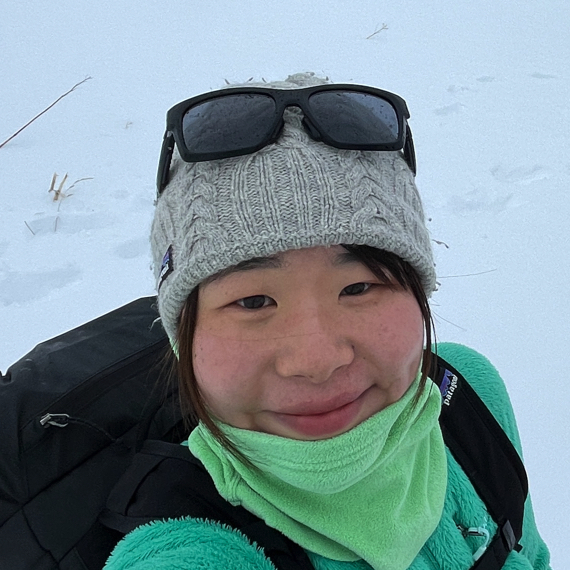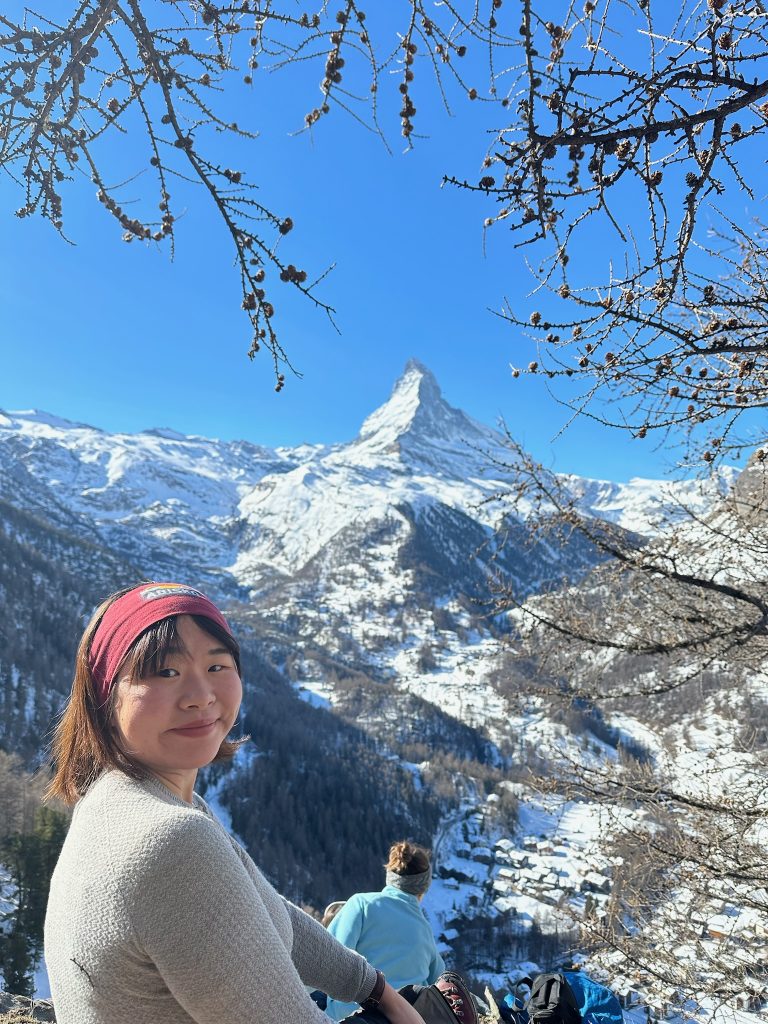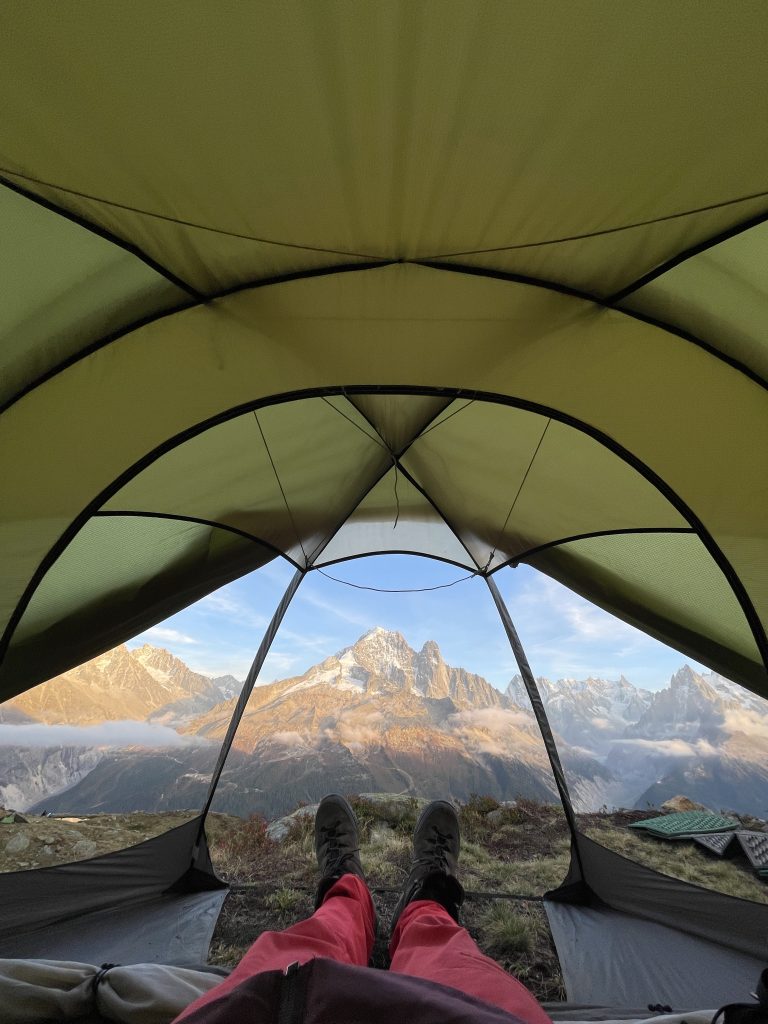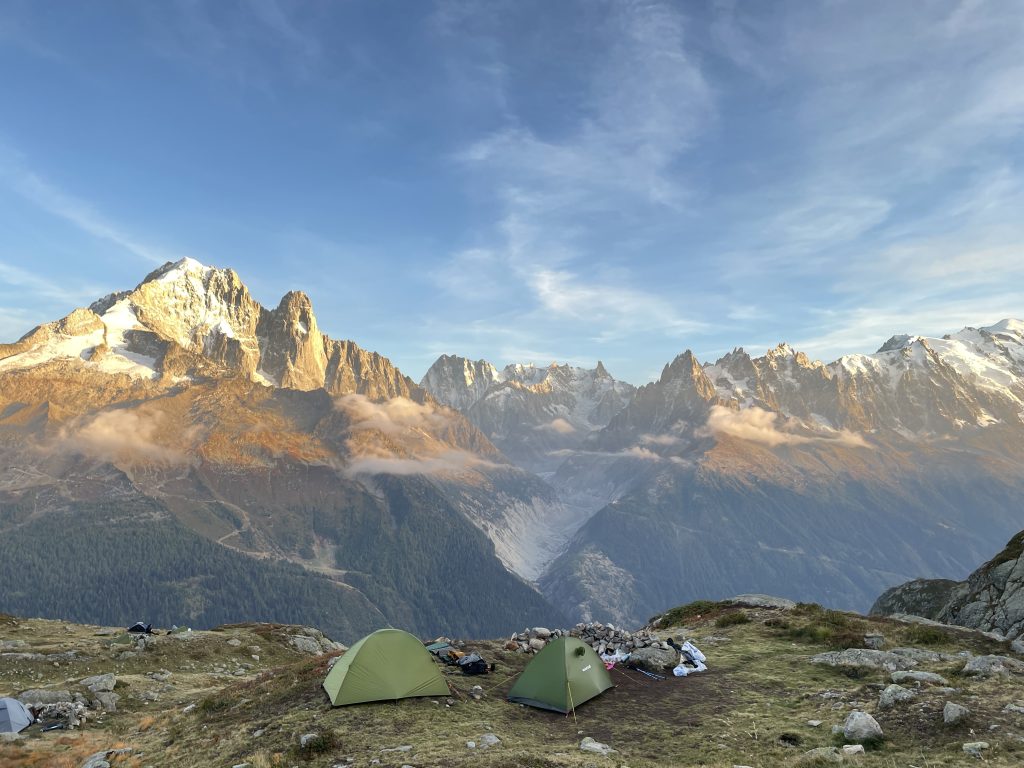Climbing Mont Blanc

Chisato Todaka is an exchange student from Keio University in Japan. She studies social anthropology, but her real passion is the great outdoors. At the end of her exchange stay in Switzerland she will climb Mont Blanc – the highest mountain in Western Europe – with her father, an experienced mountain guide. In this interview, she reflects on the differences between studying and mountaineering in Switzerland and Japan.
Chisato, why did you choose to study at the University of Bern?
I grew up camping, surfing, kayaking, and climbing because my parents run an outdoor adventure school. My dad climbed the Matterhorn and told me many stories about Zermatt, which made me want to see Switzerland for myself.

Is studying in Bern different compared to Keio University?
Swiss students study a subject to prepare themselves for their professional lives. In Japan, it is not what you learn but where and how you study that determine where you end up working. In other words, the prestige of your university helps you more in finding a good job after you graduate than your subject of study.
Is the relationship between students and lecturers different?
In Japan, we have more frontal teaching in large lectures. By contrast, in many seminars here in Bern, my lecturers know me by name. The atmosphere in the smaller classes feels like a safe space to think and express your ideas. My Swiss classmates also have more time for their hobbies than my friends in Japan.
What surprised you most in Switzerland?
Japan is a very centralised country. Many decisions for remote areas, such as Hokkaido or Okinawa, are made in Tokyo. I want to learn more about the Swiss federal system of government and how remote areas balance tourism with preserving their local customs, languages and dialects. I am particularly interested in minorities, such as the people who speak Rhaeto-Romanic in Graubünden.

Which other cultural differences would you highlight?
I feel an important cultural difference is how people treat outdoor sports: Here mountaineers conquer a summit whereas in Japan, we fear nature. Despite feeling a sense of trepidation, in Japan, we treat nature as a friend and want to make a spiritual connection with it.
In social interactions, harmony in a group is very important in Japan. Everyone is trying to “make peace”. Here in the West, it is difficult to know what other people are thinking. You always have to express your thoughts verbally to be understood.
“Stepping out of my comfort zone and experiencing cultural differences has been a challenge that has pushed me out of my comfort zone and has now given me a sense of empowerment.”
Chisato Todaka
Has the exchange changed your view of Japan?
Nonverbal communication is very important in Japan. Here, I have to express my opinions all the time to make myself understood by others. I feel that at home I can draw on more implicit norms and assumptions, and I can talk to people in my mother tongue.
I thought I would not miss home, but now that I am in my second semester in Bern, I often feel homesick. However, stepping out of my comfort zone and experiencing cultural differences has been a challenge that has pushed me out of my comfort zone and has now given me a sense of empowerment.
What was the best experience about your exchange?
The best experience of my exchange is yet to come. I am training every day for it. My dad and I will climb Mont Blanc (Elevation: 4809 metres) together. It will be a way for us to strengthen our daughter-father relationship and will be an exciting adventure.

Images: Chisato Todaka
Text: Caspar Bienek